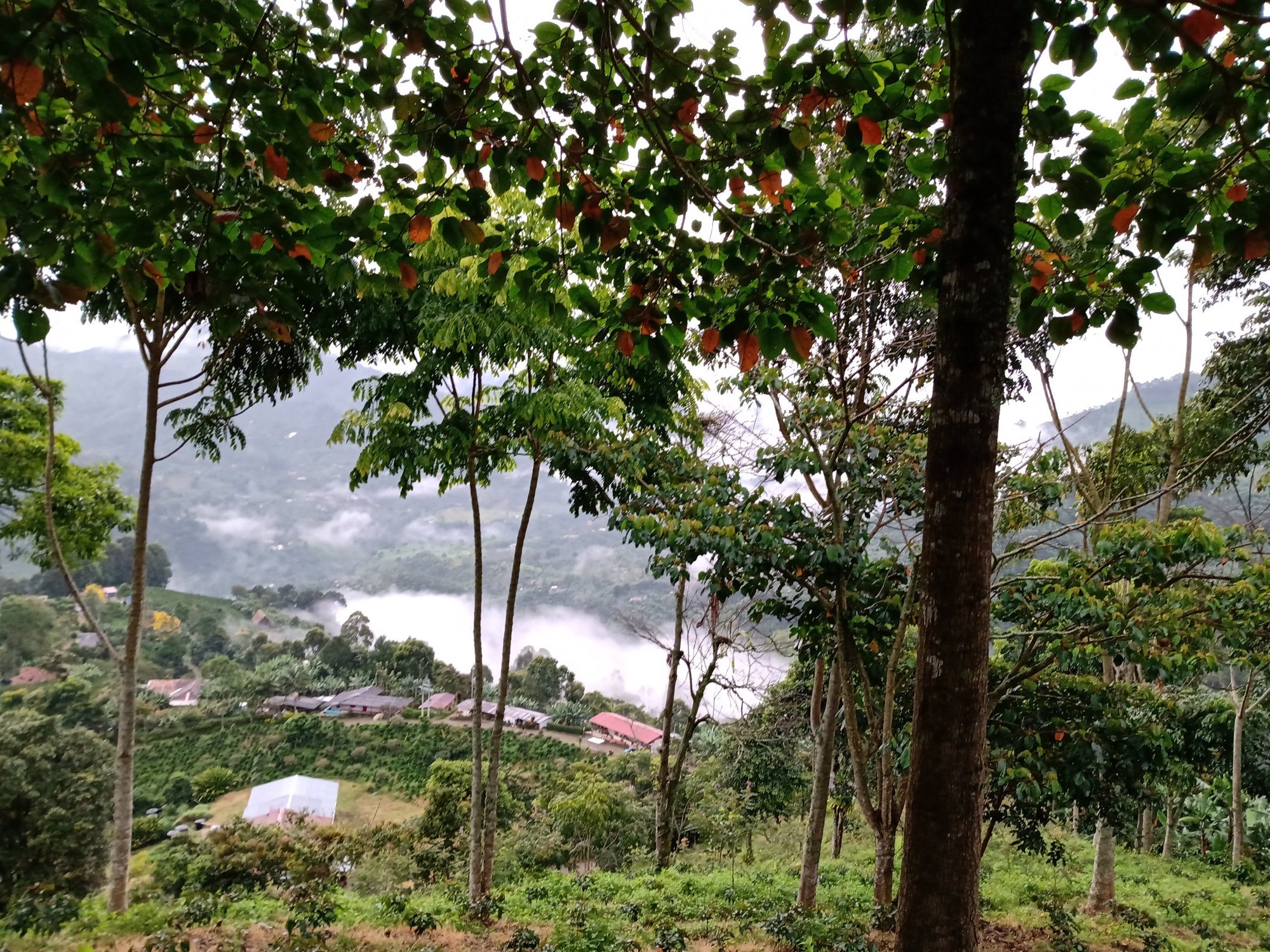
FARM : Las Brisas
REGION : Pitalito, Hiula
ALTITUDE : 1800 - 1850 MASL
VARIETAL : Caturra
PROCESS : Anaerobic Natural
Grown at high altitudes on Las Brisas farm in Colombia, this lot of Caturra showcases the impact of thoughtful farming and processing. The result is a coffee that reflects both the history of its variety and the care of the people behind it.
Caturra is a natural mutation of the Bourbon variety, first discovered in Brazil in the early 1900s. Its name comes from the Guarani word for “small” - a nod to its compact size and dense branching, which makes it easier to harvest and manage.
Thanks to its smaller stature, Caturra allows for higher planting density and better yield per hectare - an advantage that made it a cornerstone of Latin American coffee production for decades. Though gradually replaced in some regions by disease-resistant hybrids like Castillo, Caturra remains valued by producers for its versatility and potential at higher altitudes.
Producer Brayan and his team hand-pick only the ripest cherries before carefully sorting and floating them to remove any underripe or low-density fruit. The cherries then undergo a 45-hour aerobic fermentation following Cofinet’s protocol, a method designed to highlight the coffee’s inherent qualities.
After fermentation, the cherries are transferred to parabolic dryers, where they are spread in thin layers and turned regularly to ensure consistent drying. This process typically takes 10 to 15 days, allowing full development of the coffee’s character while avoiding over-fermentation or mold. The coffee is dried to a target moisture level of 9.5–11%.
We’re drawn to coffees that represent both craft and context - and this Caturra from Las Brisas is exactly that. It's a beautifully handled example of a heritage variety, processed with attention to detail and grown with an understanding of how place, people, and plant come together in the cup.

As the fourth largest country in South America, and the third largest coffee producer in the world, there is no mistaking Colombia’s presence in not only scale, but also skill. The country offers a landscape of contrasts; mountains, forests, coastlines, and micro-climates that work to produce some of the world’s most recognisable coffee.

Once the world’s largest producer of washed coffees, Colombia has had to re-energise the coffee sector after a 2009 case of Leaf Rust decimate much of the production. Thanks to large investment, disease resistant varietals of coffee trees have been planted, and volume has increased from a low of around 7.5million bags to over 12 million in 5 years. Colombia used to produce only washed Arabica coffee, from three main geographical areas trisected by the Andes mountain range. Regional coffees have become increasingly popular and are demonstrable of the distinct flavour profiles available throughout the nation. Coffees are typically mild bodied (hence the categorising term ‘Colombia Milds’), with crisp acidity and citric sweetness.
Your cart is currently empty.